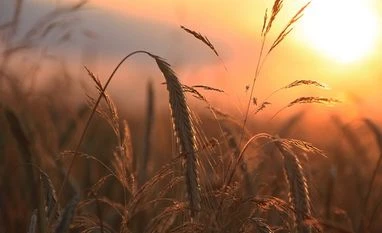The delayed southwest monsoon withdrawal will benefit winter (rabi) crops like wheat and mustard, the sowing of which has kick started in pockets of Rajasthan, according to Agriculture Commissioner S K Malhotra.
The sowing of rabi crops -- wheat, barley, gram, lentil, rapeseed, mustard and safflower -- normally begins from October through February and harvesting starts from March.
"The crop yields are dependent on soil moisture and its availability to support plant growth. Because of departure rains, there is adequate soil moisture in some state to begin rabi sowing," Malhotra said.
This year, the withdrawal of monsoon from most parts of India is almost a month behind the normal schedule of September 1.
With favourable soil conditions, farmers in Rajasthan have already started planting the mustard crop and sowing of other rabi crops will begin in the coming weeks, he said.
Stating that coverage of mustard will increase this year, Malhotra said last year, mustard acreage had declined by 4 lakh hectare as the crop did not get departure rains. "The situation, however, this year is more favourable," he told PTI.
Also Read
The rabi crops are grown in 70-72 million hectare.
In case of wheat, the official said farmers are still preparing their fields and normally its sowing begins early in areas having assured irrigation.
The government has set wheat production target of 100 million tonnes for this year, as against 99.7 million tonnes achieved in 2017-18.
)